We use cookies to help you navigate efficiently and perform certain functions. You will find detailed information about all cookies under each consent category below.
The cookies that are categorized as "Necessary" are stored on your browser as they are essential for enabling the basic functionalities of the site. ...
Necessary cookies are required to enable the basic features of this site, such as providing secure log-in or adjusting your consent preferences. These cookies do not store any personally identifiable data.
Functional cookies help perform certain functionalities like sharing the content of the website on social media platforms, collecting feedback, and other third-party features.
Analytical cookies are used to understand how visitors interact with the website. These cookies help provide information on metrics such as the number of visitors, bounce rate, traffic source, etc.
Performance cookies are used to understand and analyze the key performance indexes of the website which helps in delivering a better user experience for the visitors.
Advertisement cookies are used to provide visitors with customized advertisements based on the pages you visited previously and to analyze the effectiveness of the ad campaigns.
On 19 June, the Kraków Heritage Forum met for the last time before the summer break. Over 40 representatives from Kraków’s NGOs, informal groups, institutions, and the City Council gathered at the Guild of Food Crafts to continue their work on protecting and promoting Kraków’s culinary heritage by developing a set of recommendations for the city authorities and the Provincial Marshal’s Office.
At the beginning of the meeting, participants took part in an anonymous survey, identifying dishes associated with Kraków, representative places of culinary heritage, and characteristic culinary events and festivals. The most frequently mentioned dishes included maczanka krakowska and obwarzanek krakowski. Participants also highlighted specialties such as Pischinger, Kraków cheesecake, grylażowe cookies, małdrzyki, knedliki, Turkish honey, Kraków sausage, żurek, caraway soup, and pickled Kraków cabbage hearts. Jewish cuisine and Hungarian-style pancakes were also noted.
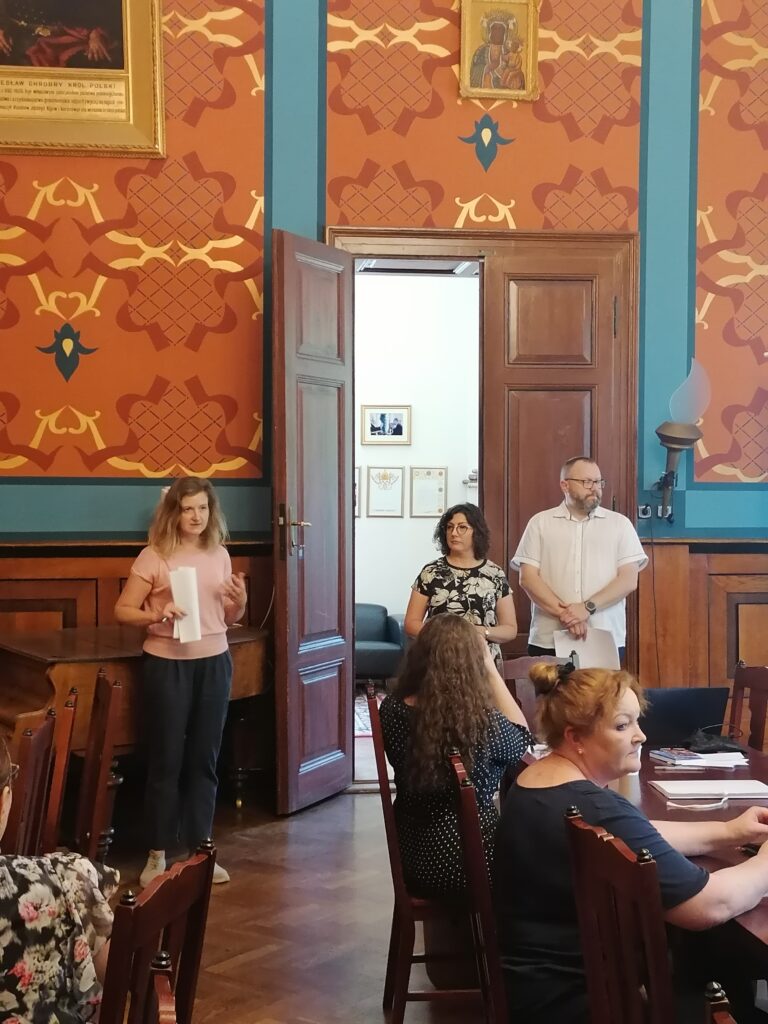
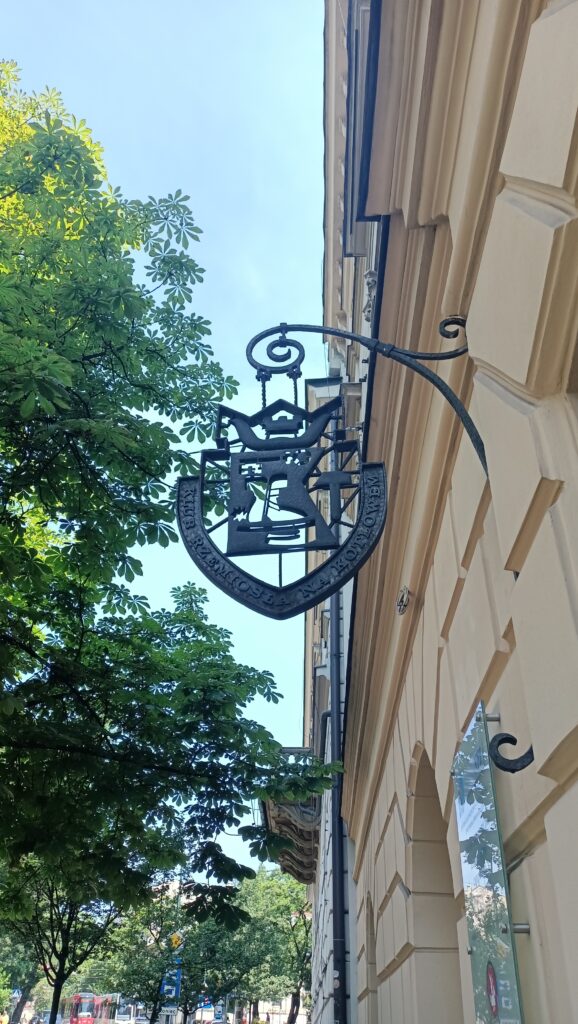
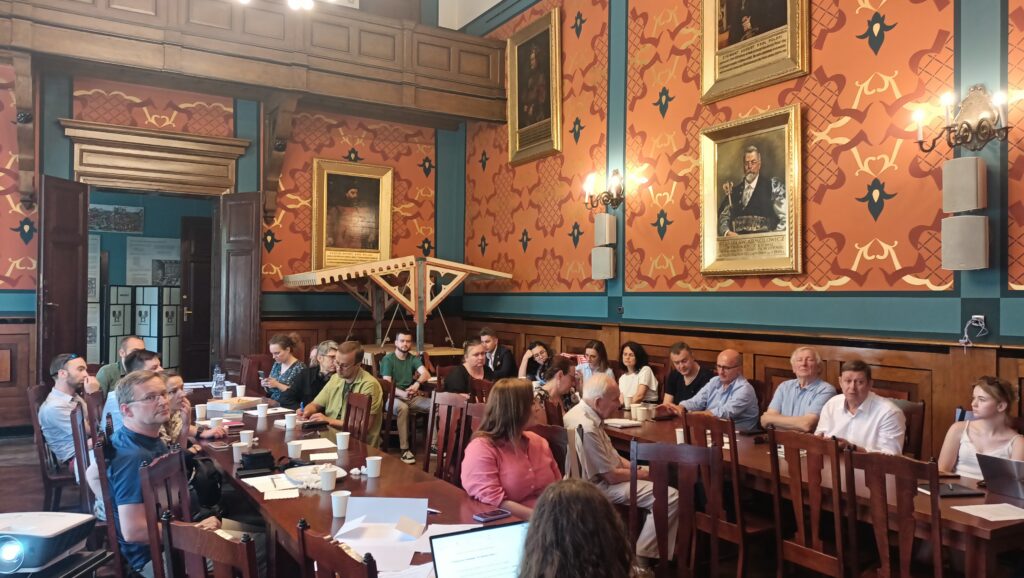
The places mentioned included specific restaurants, milk and coffee bars, confectioneries, market squares, and locations such as Hala Targowa, the Main Square, Wawel, Mały Rynek, Plac Wolnica, Kazimierz, and Kleparz. Events that sparked the most associations included the Pierogi Festival, Obwarzanek Day, Bread Festival, Emaus, Rękawka, Christmas Eve on the Main Square, the Feast at Wawel, and various seasonal fairs and culinary workshops. These responses opened the discussion and served as a starting point for creating a canon of Kraków’s culinary heritage.
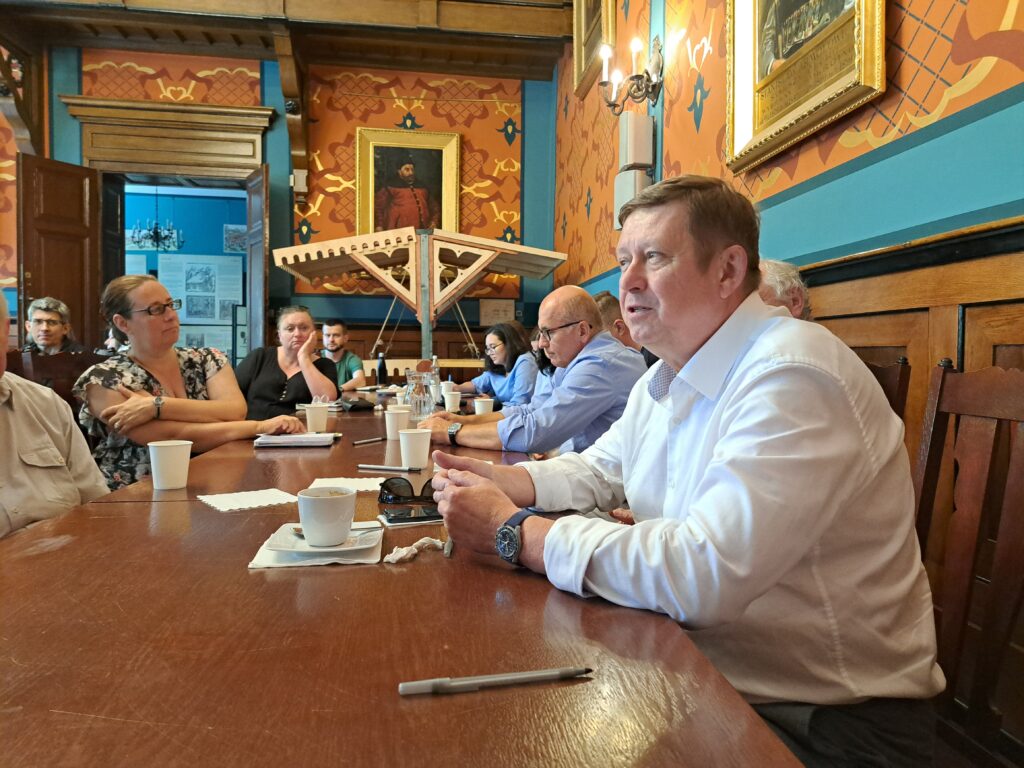
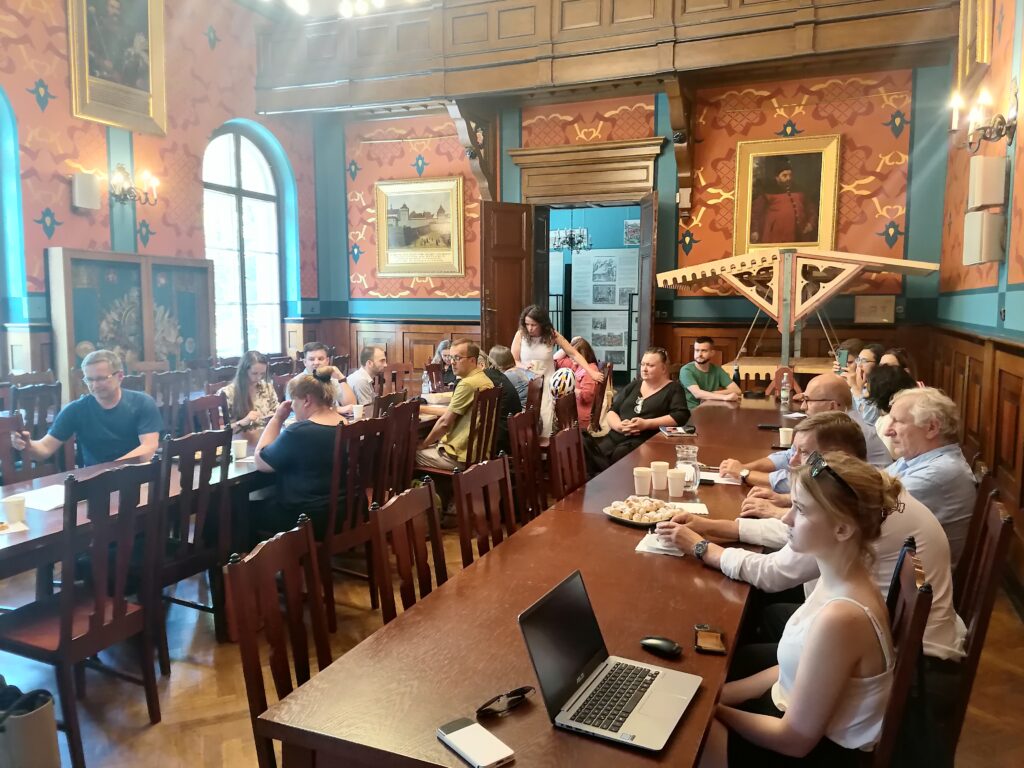
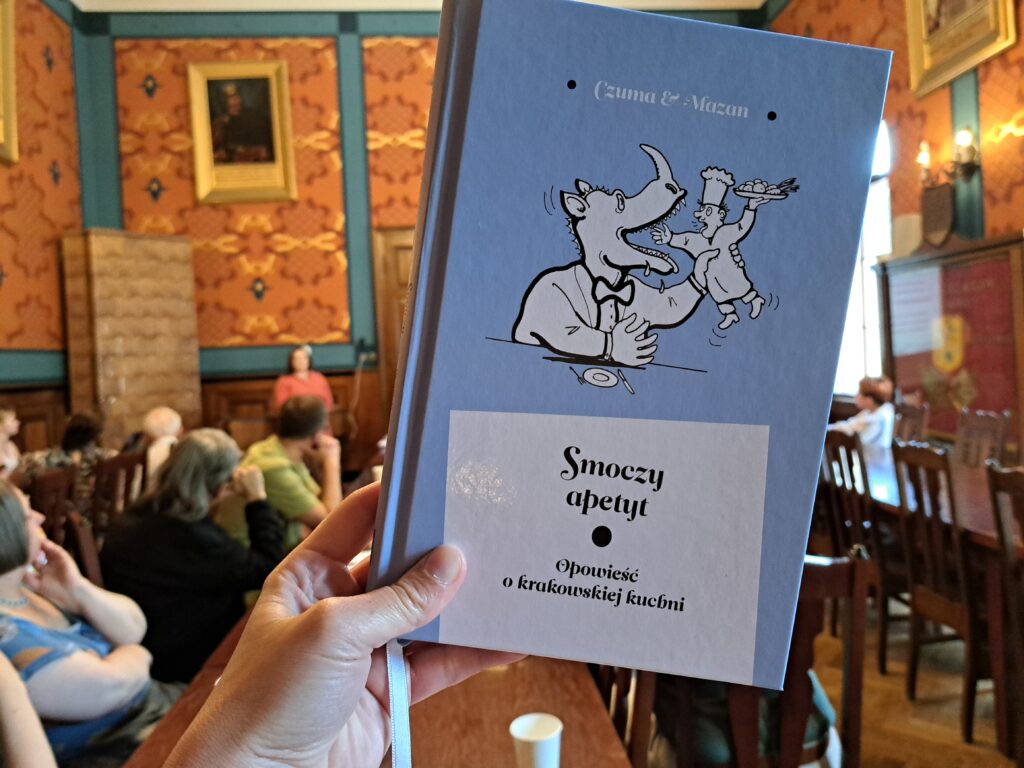
Participants then shared their experiences in protecting and promoting Kraków’s culinary heritage. Activities of various organisations were presented, such as the Foundation for the Promotion of Artisan Products, the Guild of Food Crafts, the culinary heritage mapping project by the Observatory of Development and Cultural Heritage of Regions at the University of Agriculture in Krakow, the “Edible Kraków” project by the Municipal Greenery Board, the Obwarzanek Living Museum, and other culinary initiatives.
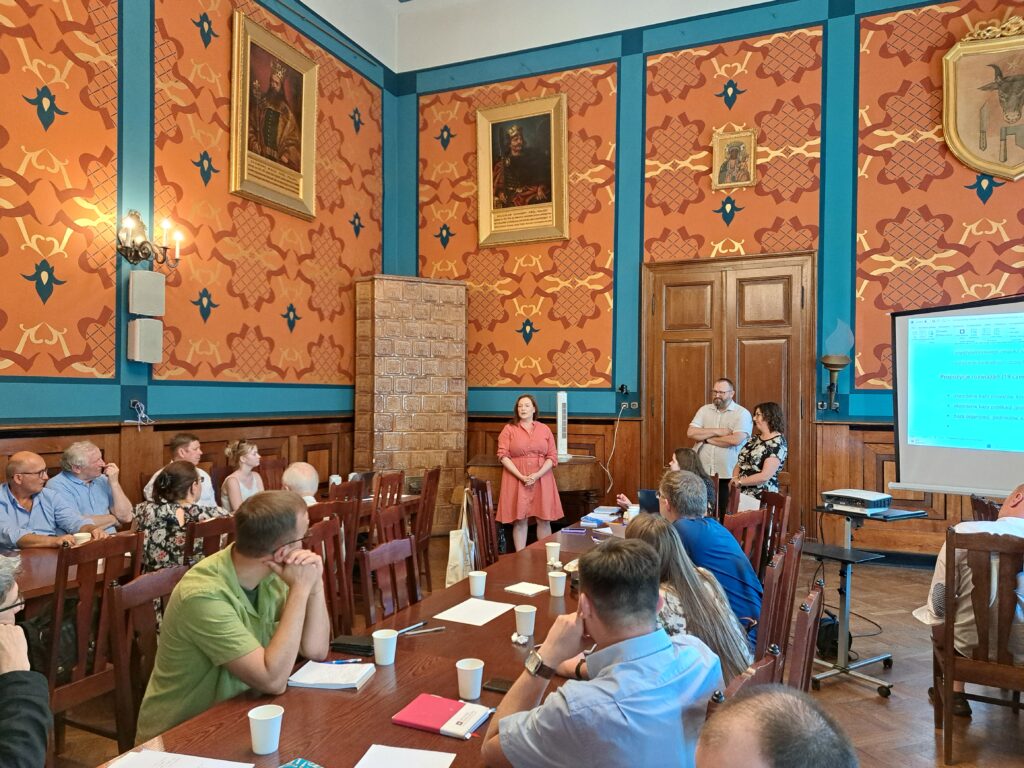
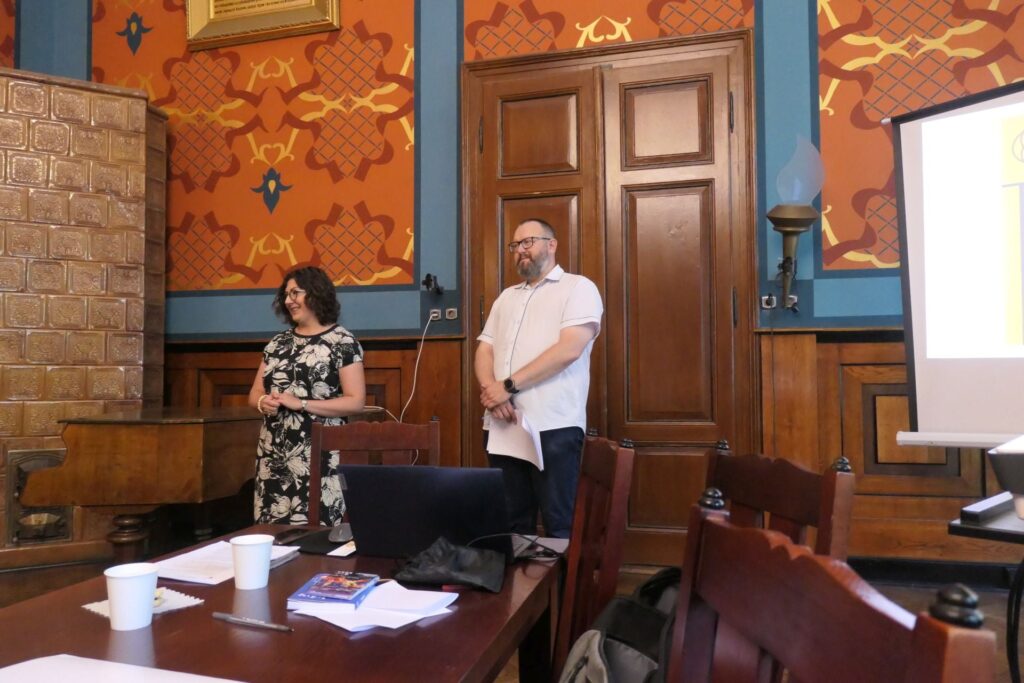

The issue of lack of communication and knowledge about ongoing initiatives and the lack of continuity of actions after the completion of projects was identified. The necessity of creating a database of projects related to Kraków’s culinary heritage and a library of publications on this topic was discussed. The need to consider the perspectives of vegetarians and vegans, as well as changing dietary habits in the context of sustainable development, was also emphasised.
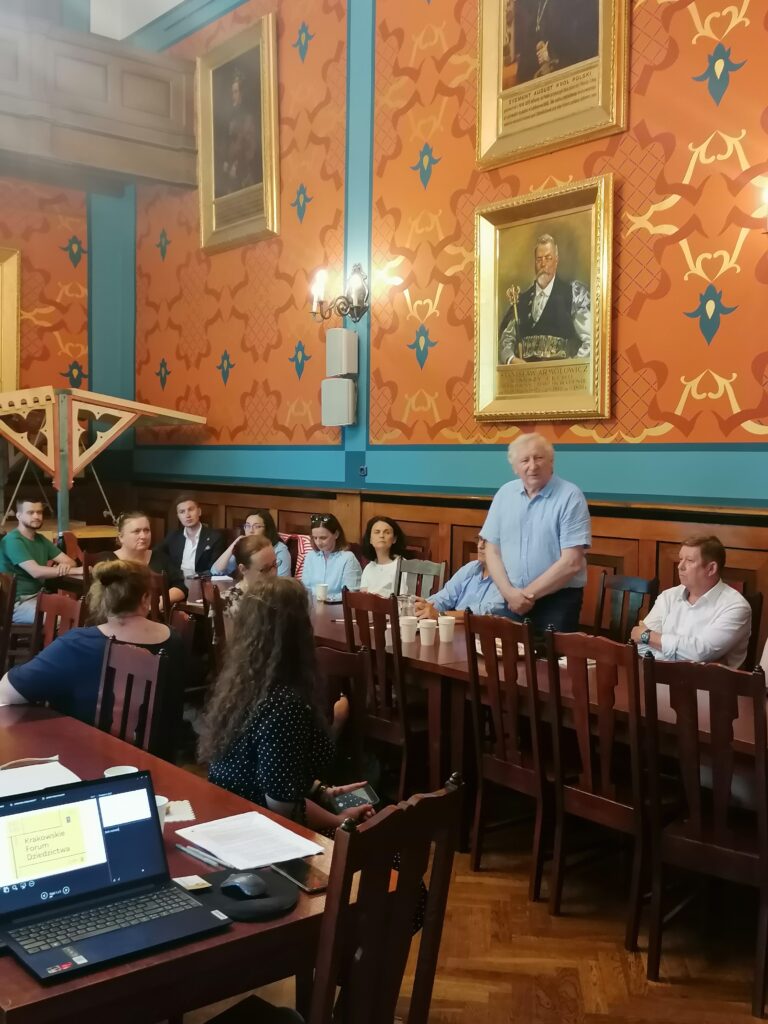
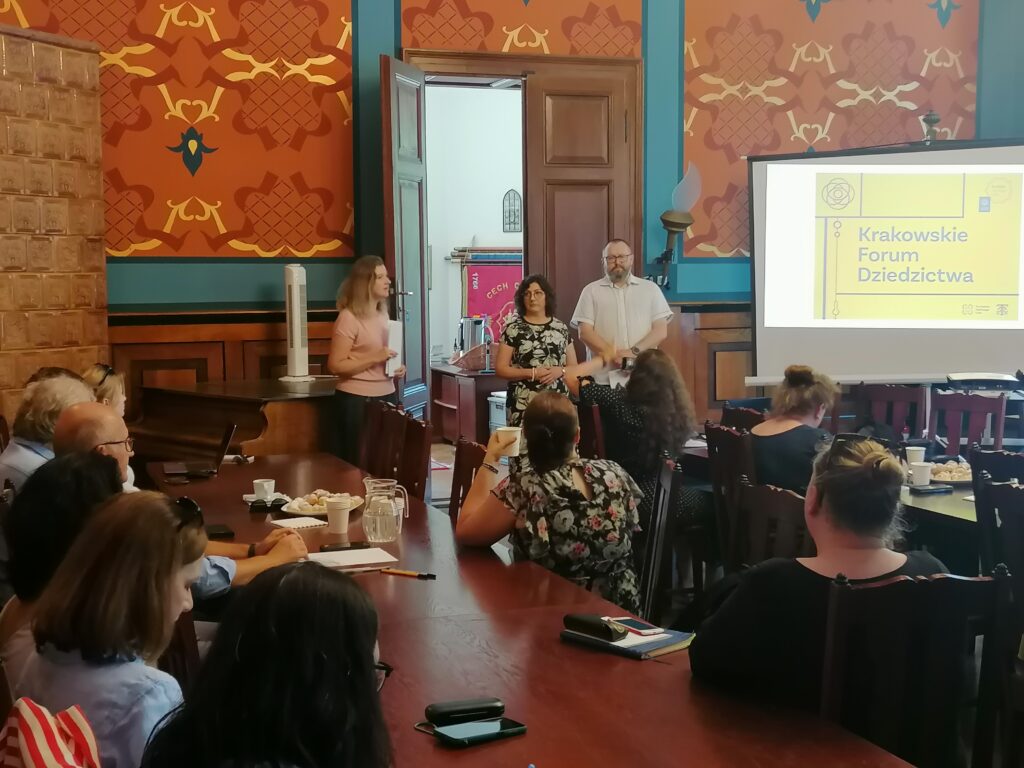
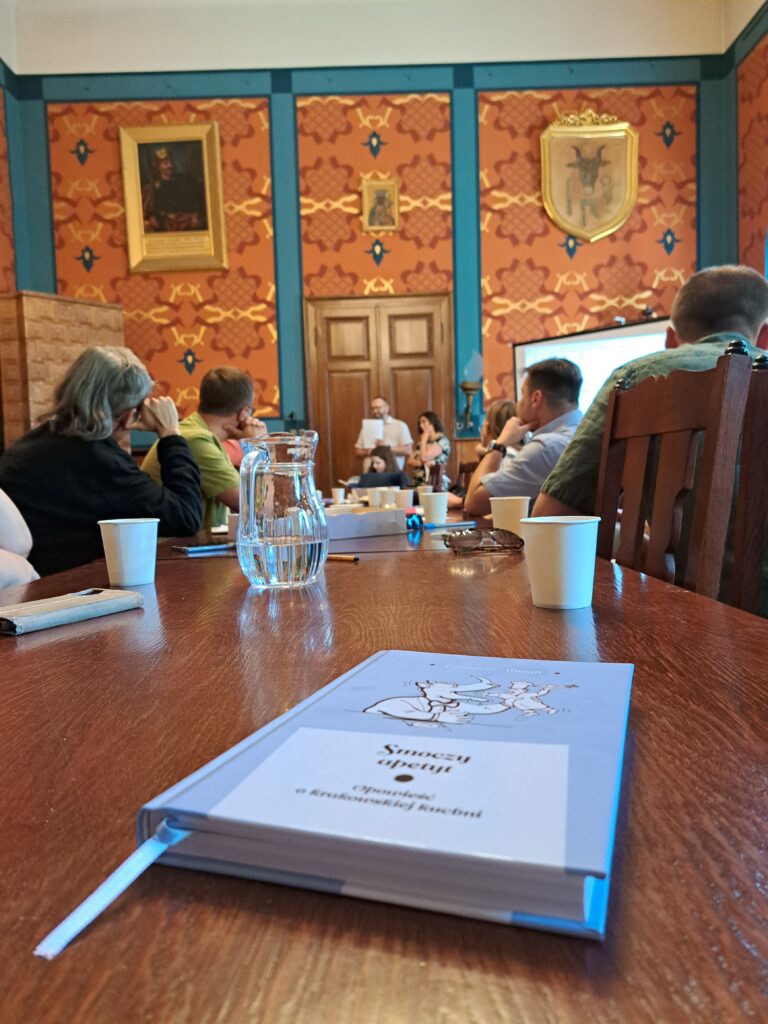
During the summer, participants will continue to work on the recommendation document online. The next Forum, finalising works on the document, will be held in September.
We invite all those interested in Krakow’s heritage to share their insights and suggestions and to join the Krakow Heritage Forum. Contact: Dr Joanna Dziadowiec-Greganić joanna.dziadowiec@heritagehubkrakow.org. Meetings are held in Polish only, however, if you wish to share your views and suggestions, we are very happy to receive them in English.